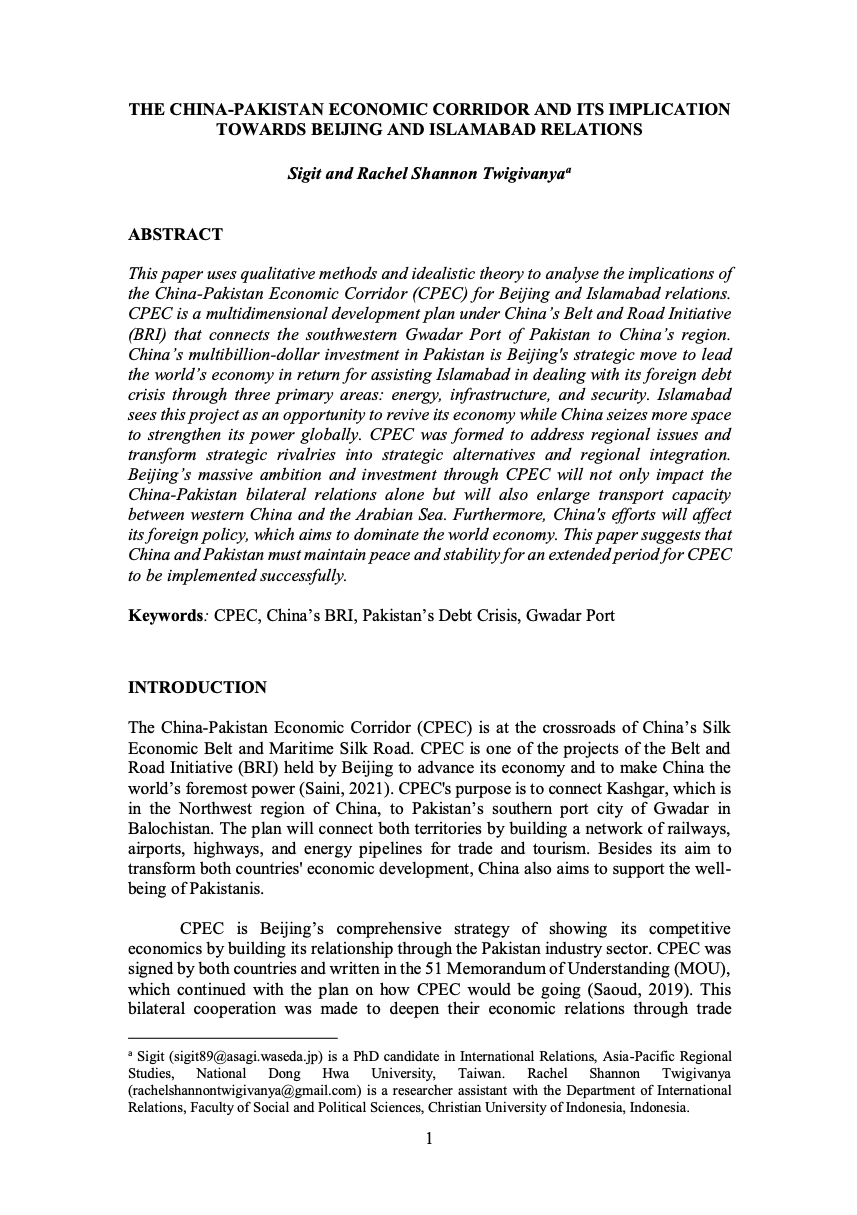THE CHINA-PAKISTAN ECONOMIC CORRIDOR AND ITS IMPLICATION TOWARDS BEIJING AND ISLAMABAD RELATIONS
Main Article Content
Abstract
This paper uses qualitative methods and idealistic theory to analyse the implications of the China-Pakistan Economic Corridor (CPEC) for Beijing and Islamabad relations. CPEC is a multidimensional development plan under China’s Belt and Road Initiative (BRI) that connects the southwestern Gwadar Port of Pakistan to China’s region. China’s multibillion-dollar investment in Pakistan is Beijing's strategic move to lead the world’s economy in return for assisting Islamabad in dealing with its foreign debt crisis through three primary areas: energy, infrastructure, and security. Islamabad sees this project as an opportunity to revive its economy while China seizes more space to strengthen its power globally. CPEC was formed to address regional issues and transform strategic rivalries into strategic alternatives and regional integration. Beijing’s massive ambition and investment through CPEC will not only impact the China-Pakistan bilateral relations alone but will also enlarge transport capacity between western China and the Arabian Sea. Furthermore, China's efforts will affect its foreign policy, which aims to dominate the world economy. This paper suggests that China and Pakistan must maintain peace and stability for an extended period for CPEC to be implemented successfully.
